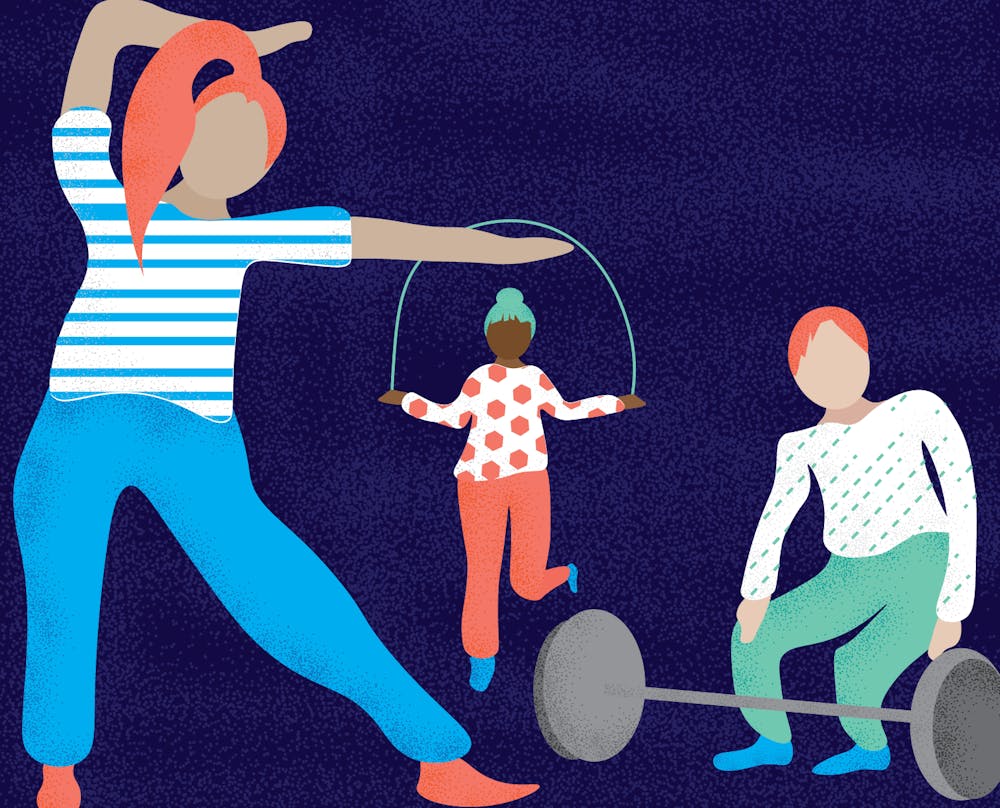At Ohio University, there are numerous organizations that assist in preparing students for their desired career paths. One such organization is the Exercise Physiology Club, which focuses on educating students, typically by exercise physiology majors, to better understand the field and to help navigate the professional world.
The club frequently hosts guest speakers in related exercise physiology and biological science fields to amplify the students’ academic development. Aside from the informative aspects, the club is also involved in social events and volunteer efforts, as they have participated in fundraisers such as the Athens Marathon and the Special Olympics. Last year, the club was recognized as the best student club within their college.
Jami DiFabio, a senior studying exercise physiology, is the vice president and treasurer of the club. DiFabio joined the club her sophomore year and mentioned her interest in the club was to help ensure that her academic focus was the right choice.
“I joined because I really wanted to get more involved, and I was kind of undecided in my major,” DiFabio said. “I wanted to make sure that that’s what I wanted to do, and the club had a lot of those answers for me.”
The complex and broad terminology of exercise physiology can make it a difficult field to define, something that students within the major are taught to understand early on in their studies. DiFabio said the field represents the inner workings of the human body and how those are impacted by exercise.
“Exercise physiology is basically how your body works throughout exercise,” DiFabio said. “We study all different parts of that as far as health and wellness and how to maintain that health with care and pre-care before you get surgeries and stuff like that.”
Angela Hillman, an assistant professor of exercise physiology, is the advisor of the club. Hillman said the field underscores the importance of exercise to the body and how it is advantageous for individuals.
“What we’re looking at are changes that occur in the body with exercise. On the other side of that, we also study what happens to your body if you don’t exercise,” Hillman said. “So in a lot of what we do, we use this term that ‘exercise is medicine,’ and we look at how beneficial exercise is for you.”
Amy Shirilla, a senior studying exercise physiology, is the president of the club. Shirilla said her major serves as a stepping stone for further studies related to physiology and biological sciences, which helps in their decision to have educational elements in their club.
“Exercise physiology is frequently a major that students end up going to grad school for, whether it be clinical exercise physiology, physical therapy school or med school,” Shirilla said. “So our main focus is to try to network so people can discover which outlook they want to go with.”
The club is not exclusive to exercise physiology majors, and Hillman encourages anyone interested in a health science career to join the club.
“The three typical pathways for pre-physical therapy programs in our university are biological sciences, psychology and exercise physiology,” Hillman said. “So we usually try to invite students who are within those fields to our informative sessions.”
The engineering department participates in a national competition each year called “The Human Powered Vehicle Challenge,” where students build a car that is powered by students. Last year, the exercise physiology club assisted in the project. Hillman emphasized that this collaboration is significant in showcasing how different fields can connect.
“The exercise physiology club helped the project by doing physiological tests on their cars and helping them develop training programs so that they can improve their product,” Hillman said. “I think it's a good application for the students to work with other disciplines to see how their expertise could help in an engineering world.”
Shirilla said the most beneficial part of the club for her was supporting underclassmen and settling their worries about their futures.
“I’ve really enjoyed seeing how I can help the younger grades and relate to them because when I was a freshman, I didn't really know what I wanted to do,” Shirilla said. “So I’ve enjoyed being able to help them and reassure them that things are going to work out.”
For Difabio, she is appreciative of the club, as it has helped her to learn more about her major much earlier in her college career.
“I am grateful to have the opportunity to reach resources and networking at a younger age,” Difabio said. “Since most majors start junior and senior year, this club has helped me to learn about my career path as early as freshman year and where I can go with this major.”






